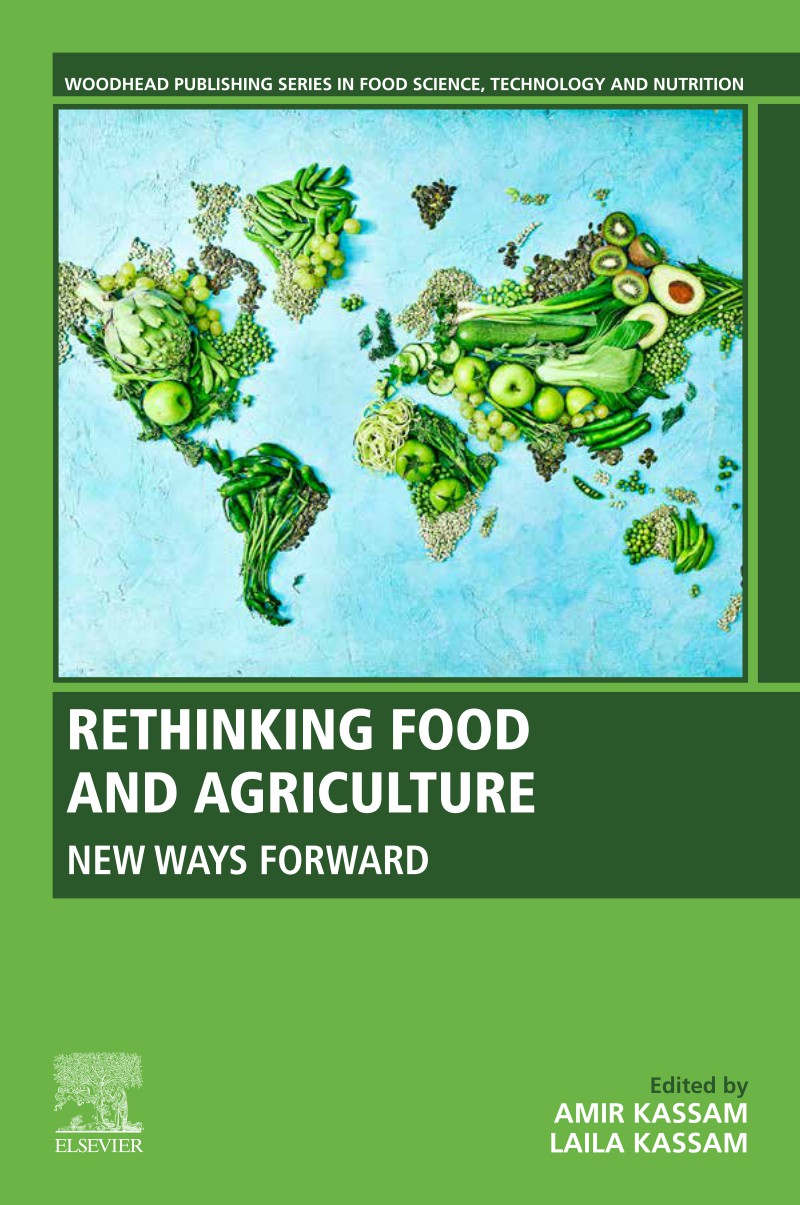Chapter 18
Alternatives to the Global Food Regime: Steps Toward System Transformation
by Helena Norberg-Hodge
Abstract
To reduce the negative impacts of the food system, small-scale ecological ways of producing food need to spread globally. This transformation has not happened because the food system is inextricably linked to a government-supported economic system that is biased against the small and local. Government policies support a global food economy where people everywhere eat similar foods, and industrial-scale monocultural production for export is the norm. This food system has been produced by globalization, driven by ‘free trade’ agreements, subsidies and tax policies biased towards the large-scale and global. Globalisation’s impacts include: loss of livelihoods; environmental and climate breakdown; increasing inequality; lack of resilience; loss of food security; and increasing conflict. Localization offers a systemic solution. It alleviates several environmental problems e.g. through: reducing energy use, GHG emissions and waste; and favoring diversified organic production methods. Local food systems also: enhance local economies; strengthen food security; and produce healthier food. Systemic change requires ‘bottom up’ efforts and ‘top down’ policy level changes to reverse the structural forces that currently promote the large and global. At the grassroots, people are building prosperous local economies that provide more meaningful, productive work and renew place-based relationships that reflect the desire for love and connection.
Extract
Throughout the world, people are pioneering farming methods that are capable of alleviating – and even reversing – the worst impacts of the destructive global food system. From permaculture to agro-ecology, from holistic resource management to agri-wilding, farmers are demonstrating the potential to massively boost productivity and food security while simultaneously restoring health to the entire biosphere.
The importance of transforming the food system can hardly be overstated. Having grown from its historic roots in colonialism, genocide and slavery, the global food regime is now a major contributing factor to all of the crises we face today. Just as colonial resource extraction was designed to fill the pockets of global traders, today’s food system prioritises the profits of multinational businesses, at the expense of ecosystems and communities worldwide.
Our entire economy has been geared towards ever-increasing centralization and international trade, and our food economy is no exception. Big Ag requires the production of enormous quantities of standardised commodities for the global market, which pressures farmers to produce ever more vast monocultures and factory farms.
These farms are not only incredibly resource-intensive and wasteful, but also amount to a war against nature. They entail massive deforestation, heavy application of toxic agrichemicals, criminal wastage of produce that does not fit the processing machinery, absurd food-miles and the resulting greenhouse gas emissions. Taking all that into account, this system is the biggest climate-changer.
It has also been an economic nightmare for the majority of the world’s people. Propped up with layer upon layer of public subsidies and supported by tax breaks and regulations skewed in the favour of big traders, the global food regime has displaced countless millions of small farmers and small businesses, decimating communities worldwide. This has pushed vast swathes of humanity into urban centres and across national borders, throwing them into fierce competition with each other for scarce jobs and resources. The result has been immeasurable personal suffering, rising intolerance and factional conflict.
The structural shift in direction needed is clear: we need to start localizing our economies, beginning with our food systems. This means shortening the distances between producer and consumer wherever possible, and thereby allowing communities, regions, and nations to take more control over their own affairs. It means re-embedding local economies in ecosystems, increasing business accountability and strengthening democracy.
The emerging array of transformative farming methods are founded on more localized, human-scale relationships. Small farms are adapted to local conditions and linked to local markets, which incentivize farmers to diversify their production and thereby support the flourishing of biodiversity. This in turn builds soil, retains rainwater and draws down carbon. Such farms also provide many more jobs for local people, who are able to observe and respond to the ever-changing needs of diversified farm ecosystems. Needless to say, this is something that automated machinery simply cannot manage.
What’s more, local food systems (and the community economies they support) form the structural basis for deep interpersonal bonds. They reconnect people to each other and to the land around them. As more and more people are realizing, it is these connections – not the dopamine hits the consumer culture offers – that are the true wellspring of wellbeing. Localization, therefore, is the economics of happiness.
Some local and regional governments have already taken meaningful steps towards localization. But most national governments are still directly and indirectly subsidizing global food, and providing the regulatory framework that favours global businesses over local ones. Given this situation, it is a testament to the power of community that localization initiatives – from farmers’ markets to cooperatives to local finance schemes – continue to spread and gain strength.
However, for such initiatives to spread more widely, localization also requires ‘top down’ policy change. In particular, subsidies, taxes and regulations need to be redirected towards supporting the local over the global. As a priority, civic society needs to push national governments to rewrite the “free trade” treaties that have, in recent times, been the primary vehicle for the the unsustainable and undemocratic expansion of big business.
By collaborating across international borders to withdraw dependence on global markets, while celebrating and strengthening grassroots initiatives, we can begin a systemic process of rebuilding our local, regional and national economies.
This is the path towards the healthier, happier and more beautiful futures that our hearts know are possible.
About The Author

Helena Norberg-Hodge
Helena Norberg-Hodge is a pioneer of the new economy movement and recipient of the Alternative Nobel prize, the Arthur Morgan Award and the Goi Peace Prize for contributing to “the revitalization of cultural and biological diversity, and the strengthening of local communities and economies worldwide.” She is author of the inspirational classic Ancient Futures, and Local is Our Future (2019), and producer of the award-winning documentary The Economics of Happiness. The impact of the global market on food and farming has been a focus of Helena’s work for almost 40 years, including two books (From the Ground Up: Rethinking Industrial Agriculture and Bringing the Food Economy Home: Local Alternatives to Global Agribusiness, as well as a Local Food Toolkit, which won a prestigious UK award for investigative journalism.
Helena is the founder and director of Local Futures and The International Alliance for Localisation, and a founding member of the International Commission on the Future of Food and Agriculture, the International Forum on Globalization and the Global Ecovillage Network.
Social Movements in the Transformation of Food and Agriculture Systems by Nassim Nobari
Co-creating Responsible Food and Agriculture Systems by Vandana Shiva



